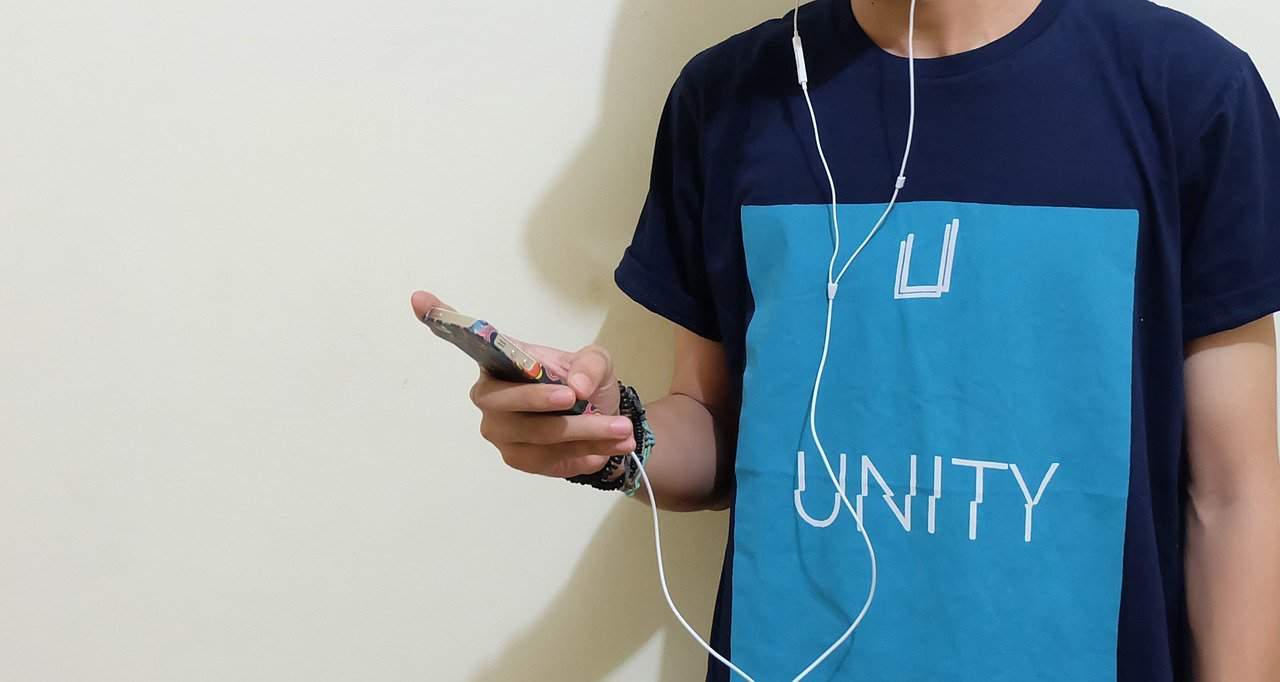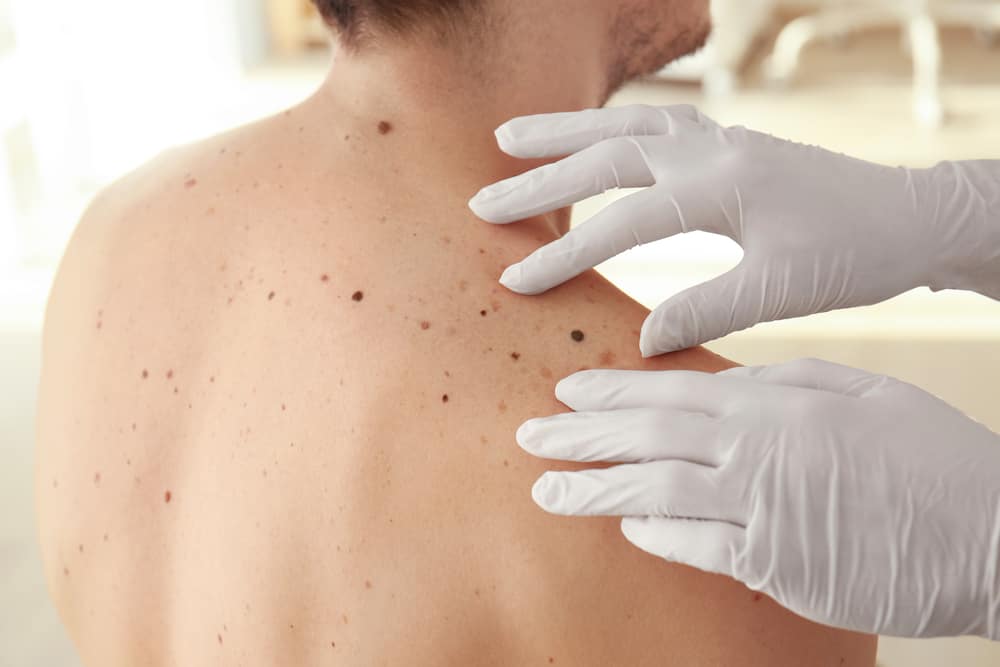Contents:
Medical Video: Disable the High Volume Warning When Listening to Music with Headphones - Samsung Galaxy S4 [How-To]
Who doesn't like listening to music? While driving, exercising in the gym, jogging in the afternoon, on the road to the office, or just to relax after a tiring day, music makes things better. Activities while accompanied by music from bands, singers, albums, or playlist favorites can help you stay focused while reducing stress.
But what do you do if you know that listening to music is harmful to your body? It might not surprise you to hear this 'news', but taking too long using earphones or headphones can really be bad for your ears.
Why listening to music through earphones increases the risk of ear infections?
A 1992 study published by a medical journal Laryngoscope It belongs to Itzhak Brook and William Jackson examined the number of bacteria in 20 audio headsets on commercial airline flights. At the start of the experiment, all heads of experimental subjects had 60 microorganisms on the surface; after being used for one hour by volunteers, the number rose to 650 - about 11 times more than before.
Although they warn of the potential risks, Brook and Jackson cannot associate an increase in germs with actual health problems; still, listening to music too long with earphones that are deeply embedded in the ear means that you prevent earwax from being rinsed naturally because the earphone pads act as clogs.
Speaker pads from your headset cause skin inflammation and cause damage to the outer ear canal, and create a moist atmosphere as a perfect breeding ground for fungi and bacteria. The environment in hot and humid ears that is exacerbated by the use of headsets causes "resident organisms from deeper layers of skin and sweat and oil glands" to gather in the open. Also, every time you insert an earphone into your ear, you push something into your ear. This habit at the same time encourages the candle that is already in your ear to be pushed deeper, so that everything that enters your ear remains trapped inside and causes a buildup of earwax in your ear canal.
Earwax blocks dirt, dust, and small particles from entering the ear's deepest part - pushing them back out of the ear canal. Using the wrong headset (too long, too deep) can block this process and consequently cause hardening of earwax. Earwax buildup can cause discomfort and even pain. This will also prevent the sound from reaching the eardrum. You can lose hearing (temporarily, of course) if the buildup of earwax is so large that it completely covers the ear canal.
How can listening to music through an earphone trigger permanent hearing loss?
"The biggest possible cause of hearing damage in young people is listening to music for too long from earphones and headphones," Dr. Shreekant Cherukuri, ENT doctor from Munster, Indiana, was quoted from NBC News. The same statement was also issued by the World Health Organization (WHO).
It might sound a little absurd, because earbuds (earphone pads) are so small. But, yes; too long and often listening to music through a personal music player can cause permanent hearing loss. All thanks to the loud volume of your music. The mini speaker from your headset 'blasts' music directly into the ear canal in a prolonged time. What's more, if your earbuds are too small or large, so they don't create a tight seal, the noise from the background will leak into your ears causing you to increase the volume even more.
Loud noise causes hearing loss by damaging stereosilia (fine hair that grows over hair cells in the inner ear). Noise makes them vibrate - changing the voltage in the hair cells - which then sends chemical messages through nerves to the brain.
According to The Guardian report, most MP3 players today can produce sound up to 120 dB (decibels), equivalent to the sound level at a rock concert. Just a little more than 110 dB, it's the same as you hear the sound of an electric saw just less than one meter from where you stand. This loud sound can erode the myelin sheath from nerve cells, which blocks the sending of electrical signals from the ear to the brain. At this decibel level, hearing loss can occur as fast as 1 hour 15 minutes after you use standard earphones or headphones with your personal music player in the maximum volume.
If you experience excessive exposure to loud noise when you are young, it is common to develop more severe hearing loss when you are older, or have it faster than you should. Todd Ricketts, professor and director of the Department of Hearing and Speech Sciences at Graduate Studies at Vanderbilt University Medical Center, quoted by the BBC, called this phenomenon a "delayed effect."
What should be done to avoid hearing problems?
Because many people depend on music to accompany them through the day, it might be a bit unrealistic to ask them to stop using their headphones at all. So what should I do?
1. Use a headset or headphone is OK, but adjust the volume
James E. Foy, DO, a pediatric osteopathic doctor from Vallejo, California, reported from Osteopathic, suggests that you should not exceed 60% of the maximum volume when listening through earphones or headphones. "I emphasize to my patients that if you can't hear any sound from around you while listening to music through headphones, your decibel level is too high."
The rule is simple, just listen to music at a volume level of up to 60 percent of the maximum volume for a total of 60 minutes a day. The harder your volume is, the shorter the duration of listening to your music in a day. At maximum volume, you are only allowed to listen to music through earphones for about five minutes per day. Don't forget to rest your ears from your favorite music listening session.
2. Select headphones, not earphones
Use the best quality headphones that you can afford. Cheap headphones don't sound bass well, aka too "loud". When you increase volume, you also increase the frequency of the sound, and this is the most dangerous sound for hearing.
Choose headphones types noise-canceling for a better and safer music listening experience. As the name implies, these headphones work to block the noise from the outside environment so you don't have to increase the volume to the maximum. You can listen to music at a softer volume for longer periods of time, without outside interference.
3. Don't delay checking your ears
Once you understand that hardening earwax, ear infections, and other hearing problems can be caused by earphones (although not the main and only cause), it is easier to take preventative steps. For example, by regularly cleaning the ears using mineral oil or warm water, or using a little hydrogen peroxide to soften the wax.
Keep your earphones clean, and regularly replace earbuds regularly to reduce bacterial buildup.
If you feel your ears or hearing are experiencing problems, do not delay to check with your doctor to get the right diagnosis for all your hearing complaints.
4. Take vitamin C
A 2013 study published by the American Journal of Clinical Nutrition reported that daily intake of antioxidant vitamins, such as vitamin C (especially when combined with beta-carotene, vitamin E, and magnesium), can prevent hearing loss. So, it never hurts to snack on apples while listening to music.
READ ALSO:
- Recipe for Natural Facial Masks for Oily Skin
- Tips for Overcoming Ringing Ears When Riding a Vehicle
- Frozen Yogurt Versus Ice Cream, Which is Healthier?












